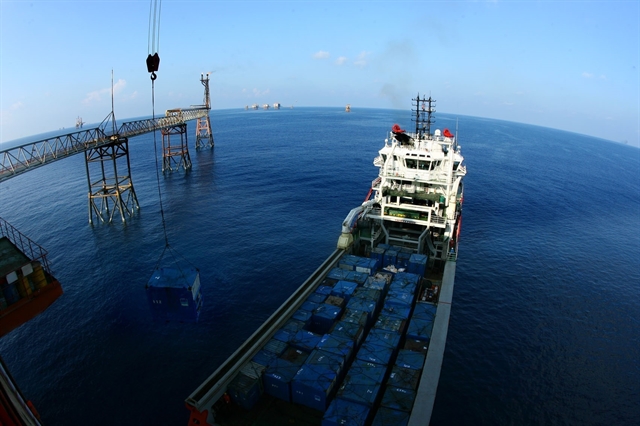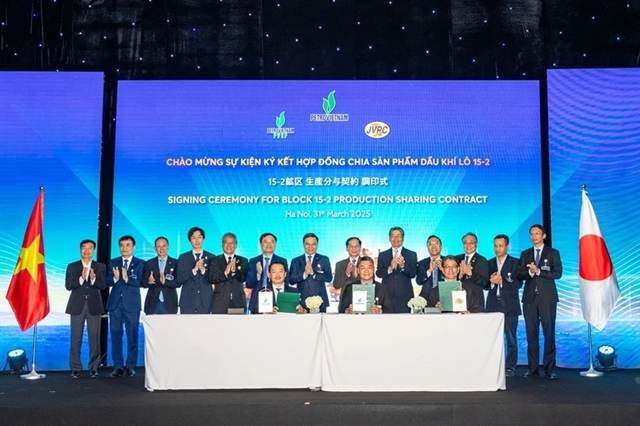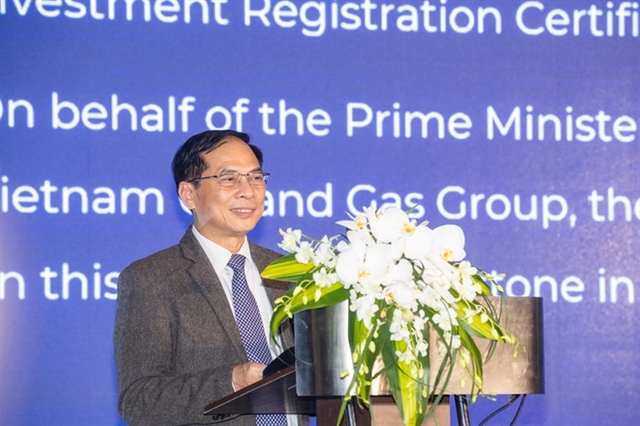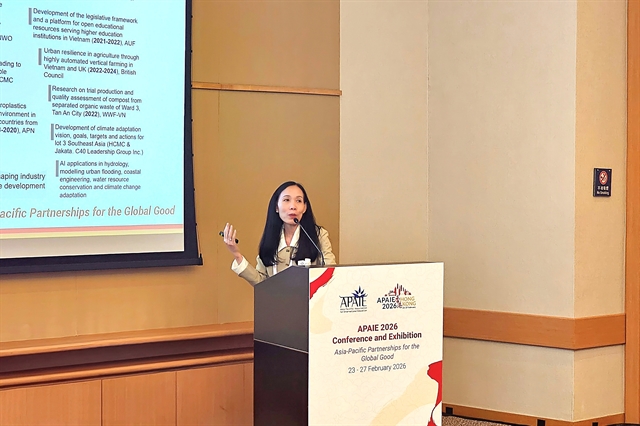 Economy
Economy

 |
| Delegates from Việt Nam and Japan at the signing ceremony of the 25-year production sharing contract for oil and gas exploration held in Hà Nội on Monday. — VNA/VNS Photo |
HÀ NỘI — Việt Nam and Japan have signed a landmark 25-year production sharing contract for oil and gas exploration in Việt Nam's southern waters.
The contract, secured by the Việt Nam Oil and Gas Group (PetroVietnam), Japan-Việt Nam Petroleum Company Limited (JVPC, a wholly-owned subsidiary of Japan’s ENEOS Xplora), and PetroVietnam Exploration Production Corporation (PVEP), will take effect on April 7.
The project will be carried out in Block 15-2 of the Cửu Long (Mekong) River basin.
At the signing ceremony on Monday, Deputy Prime Minister Bùi Thanh Sơn stressed the significance of foreign investments to Việt Nam's key economic sectors, particularly in oil and gas exploration.
He said cooperation with foreign partners, including Japanese firms boasting advanced technologies, would not only facilitate new technology transfer for the oil and gas sector but also help PetroVietnam establish its position on the global oil and gas map.
Sơn emphasised that the Block 15-2 contract was a crucial step after the 2022 Law on Oil and Gas took effect, which urged contractors to carry out their commitments to maximise the productivity of the block and to enhance oil recovery rate, which is an important task to ensure energy security.
 |
| Deputy Prime Minister Bùi Thanh Sơn speaks at the signing ceremony on Monday. — VNA/VNS Photo |
He stated that the collaboration between PetroVietnam and Japanese partners over the past years had made significant contributions to the comprehensive and deep relationship between Việt Nam and Japan.
He asked PetroVietnam to work with competent sides to study and pen initiatives facilitating both domestic and foreign investments while removing bottlenecks for the investors in the spirit of harmonious benefits and shared risks.
Meanwhile, Deputy Minister of Industry and Trade Nguyễn Hoàng Long affirmed that the signing of the contract leveraged existing infrastructure and experienced personnel, allowing for efficient resource extraction.
This initiative would contribute to the Government's double-digit growth targets from 2025 onward while strengthening economic cooperation – an important pillar in the comprehensive strategic partnership between Việt Nam and Japan, he said.
Additionally, maintaining operations in Block 15-2 and other petroleum activities on Việt Nam's continental shelf would help affirm the country's sovereignty, sovereign rights, and jurisdiction in the East Sea, he added, expressing his hope that the contractor consortium would achieve further success in the coming years, including the discovery of commercial oil and gas flows at the Đông Sơn structure in the third quarter of this year.
Japanese Ambassador to Việt Nam Ito Naoki praised the cooperation between the two countries, emphasising that energy cooperation projects are crucial as Vietnam continues its economic growth and industrial development toward becoming a high-income country by 2045.
The Ambassador expressed confidence that reforms initiated by Party General Secretary Tô Lâm to simplify administrative procedures and accelerate decision-making would improve the investment environment and promote business expansion by Japanese companies within the framework of the comprehensive strategic partnership for peace and prosperity in Asia and the world.
Based on Article 40 of the 2022 Law on Oil and Gas, the contractor consortium had proposed signing a new petroleum contract for Block 15-2, which aims to continue petroleum operations and enhance research and application of new technological solutions to maximise resource utilisation in accordance with Việt Nam's needs.
Under the new production sharing framework, the JVPC will retain a 45 per cent participating interest and continue as operator, while the PVEP holds the remaining stake. — VNS




